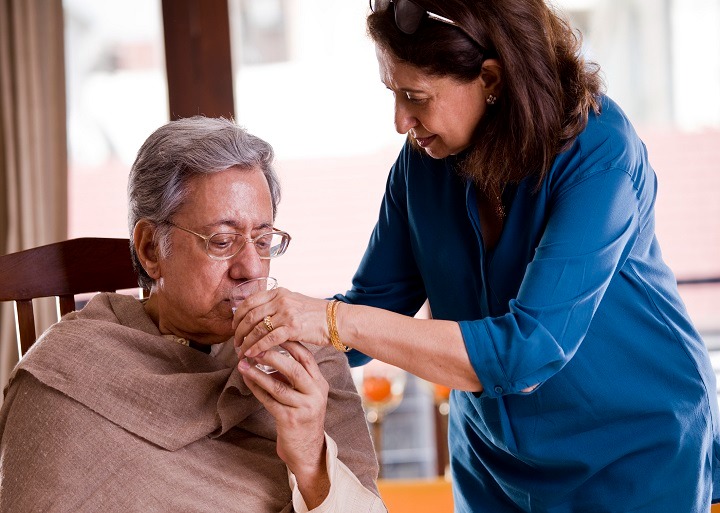Why is Dehydration dangerous? What risks does it bring along?
Dehydration is often thought to be a simple scarcity of water in our bodies. However, the fact that almost 60% of the human body is water is a clear indicator that water deficiency brings greater risks along. The risk becomes, even more, when it comes to dehydration in the elderly.
This is because their body is in a fragile state, already. Each body part requires water to function properly. Dehydration primarily affects the heart and the kidneys. Heart and kidneys comprise more than 70% and 75% of water respectively.
The lesser-known fact is that if one doesn’t work on preventing dehydration, then it can turn fatal, especially in cases of elders. As the heart requires water to function properly, dehydration causes hindrance in the same. Hence, reducing the amount of blood in the body. This can lead to shock which will result in the fall of blood pressure and turn fatal.
It is hence important to prevent dehydration, especially in seniors as their body fails to cope up with the adverse effects of the same. Dehydration can be prevented by providing proper care. In such a pursuit, home care services shall prove to be helpful to ensure proper care for elders.
Common signs that indicate dehydration:
There are many signs of dehydration that can be noticed in the seniors;
- Dry Mouth- The salivary glands of a dehydrated person fail to produce adequate saliva. Hence, the mouth feels dry.
- Lethargy- As the heart fails to function efficiently in a dehydrated body, the flow of Oxygen and other nutrients to all body organs becomes difficult. This in turn causes all the body organs to function inefficiently and hence cause lethargy.
- Headache/ Dizziness- The brain comprises 73% of water. As the brain fails to receive adequate water while the body is dehydrated and hence fails to function effectively, a dehydrated person might feel dizzy at times.
- Fatigue- As the body fails to get required nutrients while it is water deficient, a person often experiences fatigue in such situations.
- Low Blood Pressure- The inability of the heart to function effectively while the body is dehydrated results in low blood pressure.
- Inability to sweat- Sweating helps release toxins from your body in the form of water. The water-deficient body hence does not allow sweat glands to function efficiently. As a result, a person does not sweat.
Why do seniors face more dehydration? How can this stop?
Various reasons can be listed.
- As age increases, the amount of water in the body starts to decrease. This is one of the main causes of dehydration in adults.
- It is often remarked that as a person turns older, he starts turning more childish. Sometimes, seniors do not feel like drinking water. This is because they start feeling less thirsty.
- They might also forget to drink water at times. This might be the result of Alzheimer’s. Hence, they need constant, baby-like nursing care.
- A senior who is exposed to medications might also fall prey to dehydration.
- If a senior is bedridden, the case worsens. They fail to reach out for water themselves. At their age, when the urge to drink water is already less, such situations cut down the intake of water to a greater extent. Hence, resulting in dehydration.
The best way to prevent dehydration in seniors is to keep a check on their water intake and give them the care they require at that age. Considering health care services, from the most trusted ones like that of Emoha’s, which are specially designed for elders, is a great step. Dehydration is one of those most overlooked conditions, which needs attention on a regular basis, especially when it comes to the case of elders.


